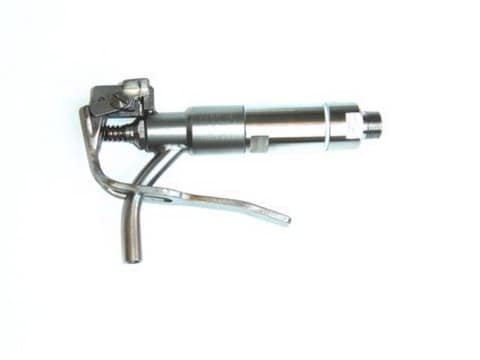2048205
Inlet Liner, Split Type, Cup Design (wool packed)
pkg of 5 ea
Sign Into View Organizational & Contract Pricing
All Photos(1)
About This Item
UNSPSC Code:
41121800
Recommended Products
packaging
pkg of 5 ea
L × O.D. × I.D.
78.5 mm × 6.3 mm × 4.0 mm
Looking for similar products? Visit Product Comparison Guide
General description
The liner is the second most important part of the inlet. It is the centrepiece of the inlet system, basically a glass tube between the septum and the column, where the sample is evaporated and brought into the gas phase. Split/splitless inlet allows fast sample introduction and vaporization which is highly advantageous for small sample sizes. Though the injection modes for both split and splitless are carried out on the same inlet, there are certain differences like a splitless injection involves the complete introduction of the sample into the column whereas in a split injection, the sample is divided in the inlet as a result only part of the sample is introduced in the column.
Deactivated (silanized) glass inlet liner for capillary injection ports.
- Fits Agilent (5890, 6890, and 7890)
- Fits Finnigan (9001GCQ)
- Fits Varian (CP-1177 Injector)
Application
Splitless inlet equipped with a flip-top sealing system in a thermal desorption unit maybe used to perform thermal desorption (TD) for the determination of pyrethroids in water samples.
Storage Class Code
11 - Combustible Solids
WGK
WGK 3
Flash Point(F)
Not applicable
Flash Point(C)
Not applicable
Choose from one of the most recent versions:
Certificates of Analysis (COA)
Lot/Batch Number
Sorry, we don't have COAs for this product available online at this time.
If you need assistance, please contact Customer Support.
Already Own This Product?
Find documentation for the products that you have recently purchased in the Document Library.
Customers Also Viewed
Els Van Hoeck et al.
Journal of chromatography. A, 1157(1-2), 1-9 (2007-05-08)
Stir bar sorptive extraction (SBSE) was applied to the enrichment of pyrethroids in water samples. Analysis was done by retention time-locked GC/MS in selected ion-monitoring (SIM) mode using trans-permethrin-d(6) as internal standard. Thermal desorption (TD) was performed in a classical
Fire Debris Analysis.
Stauffer E
Science, 249-252 (2007)
Our team of scientists has experience in all areas of research including Life Science, Material Science, Chemical Synthesis, Chromatography, Analytical and many others.
Contact Technical Service








